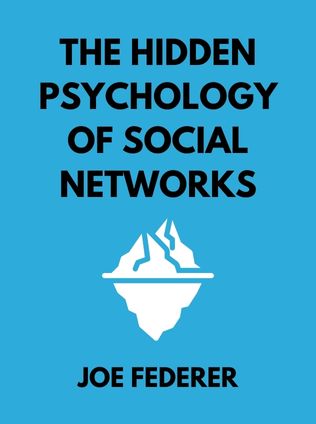
The Hidden Psychology of Social Networks
How Brands Create Authentic Engagement by Understanding What Motivates Us
By Joe Federer
Published 09/2020
About the Author
Joe Federer is a leading figure in the world of digital marketing and brand strategy, renowned for his innovative insights into the psychology of social media. As the former head of brand strategy at Reddit, Federer developed a deep understanding of how different online platforms influence user behavior and engagement. His work with major brands like Google, Amazon, McDonald’s, and Coca-Cola has cemented his reputation as an expert in creating authentic and effective digital marketing strategies. In his book, "The Hidden Psychology of Social Networks," Federer draws on a wealth of knowledge from evolutionary biology, psychology, anthropology, and his extensive hands-on experience. He explores how social networks act as digital extensions of the human psyche, offering valuable guidance for brands aiming to connect with their audiences on a deeper, more meaningful level.
Main Idea
"The Hidden Psychology of Social Networks" delves into the idea that social media platforms are not just digital tools for communication but are intricately connected to the human psychological experience. Federer argues that these platforms serve as digital reflections of various aspects of our personalities, influencing how we present ourselves, interact, and engage with content. By understanding the psychological frameworks underlying different social networks, brands can tailor their strategies to better resonate with the specific needs and desires of their audiences. This understanding is crucial for creating genuine and impactful marketing communications that foster strong connections with users.
Table of Contents
- Introduction: The Digital Psyche
- Part I: Memeology
- Part II: Social Media and Its Discontents
- Part III: Social Media's Right and Left Brains
- Conclusion: The Future of Digital Engagement
Introduction: The Digital Psyche
Federer begins by setting the stage for a deeper exploration of the psychological landscapes of social media. He posits that different platforms correspond to different psychological states or "personas" that users adopt when engaging online. This concept is fundamental to understanding the varied behaviors exhibited by individuals across different social networks. The introduction emphasizes the importance of context in online interactions, explaining that our behavior on platforms like Facebook or Instagram is shaped by the social and psychological environment each platform creates. By viewing social media through this lens, brands can better strategize their digital engagement efforts, tailoring their messages to fit the unique psychological context of each platform.
Part I: Memeology
In the first section, Federer explores the concept of memes, which he defines as units of cultural transmission that spread from person to person. Drawing from Richard Dawkins' work, he explains that memes can encompass ideas, behaviors, styles, and practices that influence cultural evolution. In the digital age, memes have become a powerful tool for communication, capable of spreading rapidly across social networks. Federer emphasizes the role of "meme machines," the formats through which these memes are conveyed, such as videos, images, and text posts. The effectiveness of a meme is often determined not just by its content but also by the suitability of the format used to deliver it.
“As advertisers, communicators, community managers, and influencers, we’re in the business of propagating memes.” — Joe Federer
- A successful meme resonates with the audience, much like how a well-crafted advertisement resonates due to its relevance and emotional appeal.
- Different platforms require different meme machines; for instance, while long-form videos might be effective on YouTube, short, impactful GIFs or images may perform better on platforms like Twitter or Instagram.
- Brands need to experiment with various formats and styles to find the most effective ways to engage their audiences, moving beyond conventional approaches to content creation.
Federer also outlines five principles for maximizing engagement through memes:
Sign up for FREE and get access to 1,400+ books summaries.
You May Also Like
The Subtle Art of Not Giving a F*ck
A Counterintuitive Approach to Living a Good Life
By Mark MansonHow To Win Friends and Influence People
The All-Time Classic Manual Of People Skills
By Dale CarnegieFreakonomics
A Rogue Economist Explores the Hidden Side of Everything
By Steven D. Levitt and Stephen J. DubnerQuiet: The Power of Introverts
The Power of Introverts in a World That Can't Stop Talking
By Susan Cain



















